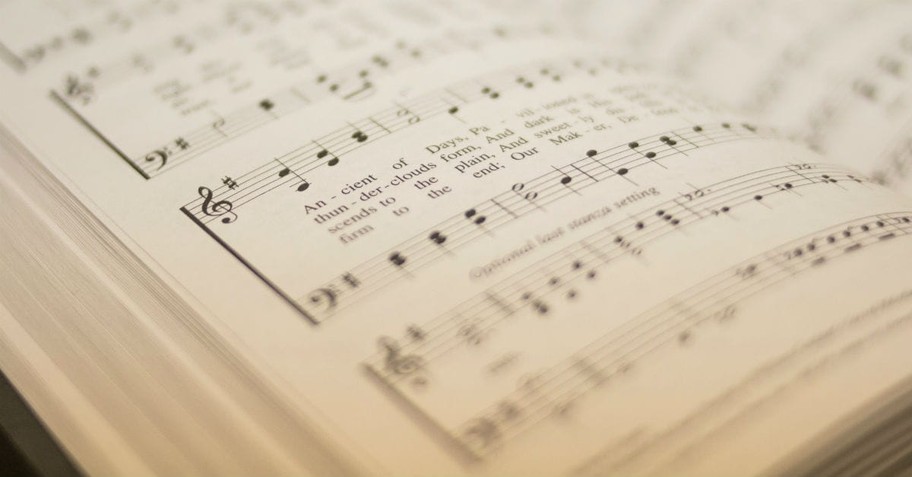How to Genuinely Worship in Church When the Songs Aren't Your Style

I’ve never felt comfortable singing at a mega church. I don’t mean any disrespect. It’s just that for me, as an East Indian gal who is more used to Asian house churches and small Baptist gatherings, both the general selection of songs at these bigger churches as well as the way in which these songs are sung is far from what I naturally enjoy. I struggle with feeling like the music is more of a performance than an invitation to communal worship; the sanctuary is too dark; the colored, flashing lights appear inauthentic; and the energy of the singers seems over-hyped. In short, whenever I visit a mega church, my traditional mode of worship is challenged by new forms of music, and I don’t like it.
But isn’t that true of most of us?
Many Christians have a preferred musical expression. Perhaps it is CCM (Contemporary Christian Music), hymns, songs in Spanish, Gospel, acapella, or even rap. Many of us grew up in a denomination that only sang one of these types of music, and that is what we’re used to, what we’re comfortable with, and what we prefer. The trouble, though, is that when we attend a different church with a different expression of music, we don’t always like the new music we hear. Maybe we don’t know the words to the songs, or perhaps we just don’t like that genre of music. Or perhaps you are new to faith and attending a church service for the first time, and all the music is unfamiliar and uncomfortable. Whatever the case, the result can often be that we struggle to sing the songs genuinely. They feel meaningless to us, so we choose to sing begrudgingly or to not sing at all.
Photo Credit: Unsplash/Tanja Heffner

"There is deep meaning behind why we sing during a church gathering."
The issue of music in church can be contentious and deeply personal, but it shouldn’t stop us from still genuinely worshipping on Sunday mornings. There is deep meaning behind why we sing during a church gathering. For example, when we sing on Sunday mornings, we join in global worship with fellow brothers and sisters who are singing in their own respective churches around the world. Not to mention that musical worship is a tradition that Christians have been partaking in together throughout church history. There’s history and purpose in singing at church among other things.
Here are three suggestions for how to lean into this tradition and be more genuine in your singing, even when the songs are not your style.
Photo Credit: Unsplash/Tadas Mikuckis

1. Remember that the Music is not About You
This may sound harsh, but it’s true: singing at church is not about us. No matter what the genre of music is or what song is being sung, our singing should be about God.
God just wants us to sing to Him with a joy-filled heart. This is why in Psalm 98:4, it states, “Make a joyful noise to the LORD, all the earth; break forth into joyous song and sing praises!” Note the fact that we are not called to make a joyful song, per say. Rather, anyone, anywhere and with anything, from our voices to our instruments, should just make a joyful noise.
This is the primary reason why we should sing at church: our songs should create joyful worship to God.
Photo Credit: Unsplash

"I begin to enjoy it because I am trying to give myself fully to it."
Now, if we walk into church with this perspective – that worship is about God and not about us – we can begin to challenge ourselves to get into the songs, to process them, make sense of them, and then with our hearts to sing them aloud and with joy, regardless of the words, the beat or the tune.
We may not like the song we are singing, but that’s ok because it’s not about whether we like the song or not. It’s about whether we can still express joy to God through it and whether He is pleased by our singing. In fact, in my experience, whenever I engage with other musical expressions at church, especially those I don’t “prefer,” I find my heart eventually following in. I begin to enjoy it because I am trying to give myself fully to it.
Photo Credit: Unsplash/Miguel Bruna

2. See the Beauty in Different Musical Expressions
I do want to also take a moment to address the issue of different genres because there is great beauty in these various expressions. God created each and every one of them in their own unique way; first, as a demonstration of his own creativity and, second, as a means to represent just as many unique and different kinds of people.
When we consider the vast variety of music, we see that its diversity is so intimately connected to different ethnicities, cultures, and personalities. For example, many Latino churches (our own multicultural church included) naturally sing songs in Spanish; traditional African American churches have choirs and sing a lot of Gospel music; many larger white churches sing CCM; and older denominations often prefer hymns. Each of our musical preferences have a culture attached to them, and it is good to recognize that for when we do, we can see that each type of music has its own special way of giving praise and honor to God, like so many glittering pieces of glass that comprise one beautiful mosaic. This is something that we should celebrate!
By leaning in and participating in songs of different cultures, you are affirming these God-created expressions. Even if it is not your preferred musical expression, engage with it because God made it and that makes it beautiful.
Photo Credit: Unsplash/Michael Maasen

3. Use the Music to Edify Other Members of the Congregation
Finally, singing at church plays another role: the edification of fellow believers. Ephesians 5:19 commands us, “be filled with the Spirit, addressing one another in psalms and hymns and spiritual songs, singing and making melody to the Lord with your heart.” This means that our singing serves each other spiritually. This is because singing can be spiritually edifying. Did you know that our faith and love for God can be kindled when we see other people loving God too; in this case, through singing? When I enter a gathering and other people are singing, it should make me want to burst out in song too. In this way, the body spurs each other on to worship God. Is that not beautiful?
Photo Credit: Unsplash

"Nowhere in Scripture is there mention that musical worship should be a self-serving experience."
So, as it pertains to music at church, let us check our heart. May we press in to join with our fellow brethren in joyfully worshipping our King, spiritually serving each other, and in being served. Nowhere in Scripture is there mention that musical worship should be a self-serving experience. It is first about God and then, second, about others, and if we can keep this perspective in mind, we may find ourselves more willing to engage in songs that we don’t know or don’t even enjoy.
Michelle Reyes, PhD. is pastor’s wife, literary scholar, and momma of two littles. She is a regular contributor for Think Christian, (in)courage and Austin Moms Blog, where she writes on faith, family, and diversity. Michelle helped plant Church of the Violet Crown in Austin, Texas in 2014—an urban, multicultural church where her husband, Aaron Reyes serves as lead pastor.
Photo Credit: Unsplash
Originally published August 09, 2018.





